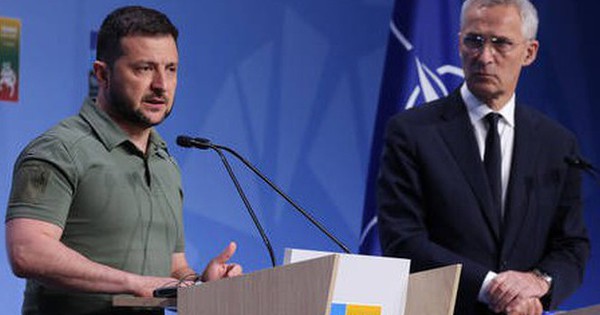US and Germany “reluctantly” accept Ukraine’s NATO membership

According to The New York Times, officials within the US-led military alliance fear that such a strong move “will drag NATO into the largest land war in Europe since 1945,” while also stating that NATO is seeking an alternative. These concerns are said to be shared by Germany and the United States, both of which opposed opening discussions on Ukraine’s NATO membership at the NATO summit in Washington in July. At the same time, they support long-term security commitments to Ukraine.
On April 3, NATO Secretary-General Jens Stoltenberg called on members of the military alliance to focus on providing Ukraine with “reliable and predictable security support” instead of voluntary contributions. The head of NATO proposed a military aid package worth €100 billion ($107 billion) over five years for Kiev, which would also make the alliance responsible for coordinating support, rather than the United States.
However, some Western diplomats told The New York Times that the plan seems “difficult to grasp” at this time. Former US ambassador to NATO, Ivo Daalder, said Washington seems to be quietly opposed to the initiative. This would diminish the role of the United States in coordinating support. Hungary, another NATO member country, has publicly opposed any action that could further involve the alliance in the Russia-Ukraine conflict.
It is also unclear how NATO can compel its members to contribute to a €100 billion package over such a long period of time. In recent weeks, Russia has taken control of the important city of Avdeevka in Donbass, as well as some nearby settlements. Ukrainian President Zelensky warned in March that this would not be the final withdrawal of Ukraine unless the United States extends military support. A aid package has been stalled in the US Congress for months due to opposition from the Republican Party. Republican lawmakers are demanding that the United States allocate more resources to enhance security along the border with Mexico.
Russia has condemned Western arms supplies to Kiev, warning that they will only prolong the conflict. Officials in Moscow have also accused the West of using Ukraine as a tool to achieve “strategic failure” against Russia.
This article, as a part of Business Today’s commitment to delivering expert financial and economic insights, focuses on the recent developments regarding Ukraine’s potential NATO membership. The United States and Germany, albeit with reluctance, have accepted the possibility, raising concerns about the potential consequences of such a move.
The New York Times has reported that officials within the US-led military alliance fear that Ukraine’s NATO membership could lead to a major conflict in Europe, while NATO itself is seeking an alternative solution. Germany and the United States initially opposed opening discussions on Ukraine’s NATO membership but voiced support for long-term security commitments to Ukraine.
NATO Secretary-General Jens Stoltenberg has called for member countries to provide Ukraine with reliable and predictable security support, suggesting a military aid package of €100 billion over five years. However, Western diplomats have expressed doubts about the feasibility of this plan. Some believe that the United States is quietly opposed to the initiative, which could diminish its role in coordinating support.
The article also highlights the challenges of compelling NATO members to contribute to such a substantial aid package over an extended period. Additionally, it mentions recent territorial gains by Russia in Ukraine and Ukrainian President Zelensky’s warning that further support is necessary to prevent further withdrawals.
The article concludes by mentioning Russia’s condemnation of Western arms supplies to Ukraine and its accusation that the West is using Ukraine as a means of undermining Russia strategically.
For more news and updates on the latest finance and economic developments, visit Business Today.

